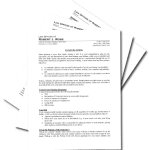Best Guardianship Lawyers in Illinois
Share your needs with us, get contacted by law firms.
Free. Takes 2 min.
Or refine your search by selecting a city:
List of the best lawyers in Illinois, United States
About Guardianship Law in Illinois, United States
Guardianship is a legal process in Illinois where a court appoints an individual or organization to make decisions for another person, known as the ward, who cannot manage their own affairs. This situation may arise because the individual is a minor without parents able to care for them, or due to disability, mental illness, or aging that impacts decision-making ability. Illinois law provides specific procedures and protections regarding the appointment and oversight of guardians, ensuring the ward's best interests are served while protecting their rights.
Why You May Need a Lawyer
Seeking legal help in guardianship matters can be essential for several reasons. Common situations include:
- Filing for guardianship over a minor child when parents are unable or unavailable to care for them.
- Pursuing adult guardianship for an elderly parent or relative who can no longer make safe decisions about health, finances, or daily living.
- Contesting a guardianship proceeding if you are the proposed ward, or if you believe the appointed guardian is not acting in the best interest of the ward.
- Understanding your rights and responsibilities if you have been appointed as a guardian.
- Terminating or modifying an existing guardianship due to changed circumstances.
Guardianship matters often involve complex court procedures, detailed documentation, and the need to advocate effectively for yourself or your loved ones. A lawyer can help navigate the process, ensure compliance with Illinois law, and protect everyone’s rights and interests.
Local Laws Overview
Illinois guardianship law is primarily governed by the Illinois Probate Act of 1975. Here are key aspects to understand:
- There are two main types of guardianship: guardianship of the person (responsibility over personal matters such as healthcare and living arrangements) and guardianship of the estate (management of financial and property matters).
- Guardianships can be temporary, limited, or plenary. Temporary guardianship is short term, limited guardianship restricts the guardian’s powers to specific issues, and plenary guardianship grants full authority.
- To become a guardian, you must file a petition in the appropriate Illinois circuit court and give notice to the individual and interested parties.
- The court will appoint a guardian ad litem, an independent evaluator, to investigate and make recommendations regarding guardianship before a judge makes a final decision.
- Court oversight continues after appointment, requiring guardians to file regular reports and accountings.
- Illinois law emphasizes the least restrictive alternative, seeking to maintain as much autonomy for the ward as possible.
Frequently Asked Questions
What is the difference between guardianship of the person and guardianship of the estate?
Guardianship of the person grants authority over personal affairs such as healthcare and daily living. Guardianship of the estate provides authority over financial matters. One person can serve in both roles, or separate individuals can be appointed.
How do I start the guardianship process in Illinois?
You begin by filing a petition in the local circuit court, typically in the county where the ward lives. You must notify the relevant individuals, and the court will schedule a hearing to determine if guardianship is necessary.
Can a guardianship be temporary?
Yes. Temporary guardianship can be granted in emergency situations and usually lasts up to 60 days. It provides immediate but limited authority until a full hearing is held.
How does the court decide if someone needs a guardian?
The court considers medical evidence, testimony from the proposed ward and others, and the findings of a guardian ad litem to determine if the person is unable to make or communicate responsible decisions due to age, illness, or disability.
Who can serve as a guardian in Illinois?
Any adult resident of the United States who is of sound mind and not under disability can serve as a guardian. Certain individuals, like those with serious criminal convictions, may be ineligible.
Can a guardianship be challenged or ended?
Guardianship can be contested during the initial proceeding or later if conditions change. Wards or interested parties can file to modify or terminate guardianship if the ward regains capacity or the guardian is not acting properly.
What are the guardian’s responsibilities?
Guardians must act in the ward’s best interests, manage affairs prudently, keep accurate records, and report regularly to the court. They must seek court approval for significant decisions beyond routine management.
What oversight exists to ensure guardians act properly?
Courts require annual reports and financial accountings. Interested parties may also petition the court if they suspect abuse or negligence by the guardian.
How is guardianship of a minor different from guardianship of an adult?
Guardianship of a minor is often based on parental incapacity or absence, while for adults it is due to incapacity or disability. The process and documentation are similar, but the reasons and potential outcomes may vary.
Do I need a lawyer for guardianship proceedings in Illinois?
While it is possible to petition the court without a lawyer, legal representation is strongly recommended due to the complexity of the laws, procedural requirements, and the high stakes involved in guardianship cases.
Additional Resources
Individuals seeking more information or assistance with guardianship in Illinois may find the following helpful:
- Illinois Department on Aging: Offers resources on adult guardianship and elder services
- Office of State Guardian: Provides assistance and advocacy for adult wards who cannot secure a private guardian
- Illinois Guardianship and Advocacy Commission: Protects the rights of persons with disabilities through legal advocacy and guardianship services
- Local circuit court offices: Offer forms, procedural guidance, and information on filing for guardianship
- Legal aid societies and non-profit organizations: May offer free or low-cost legal help for eligible individuals
Next Steps
If you need legal assistance regarding guardianship in Illinois, consider these steps:
- Gather any documents related to the proposed ward’s condition, finances, and relationships.
- Contact an attorney who is experienced in Illinois guardianship law for an initial consultation.
- Reach out to your local circuit court to understand filing requirements, forms, and procedures.
- Prepare to participate in court hearings and work with guardianship investigators, as necessary.
- Review any orders or instructions received from the court, and comply with reporting and oversight requirements if you are appointed as a guardian.
Acting with care and diligence is essential, as guardianship carries significant responsibilities and legal consequences. Legal guidance can help you protect your loved one while ensuring you meet all court and statutory obligations.
Lawzana helps you find the best lawyers and law firms in Illinois through a curated and pre-screened list of qualified legal professionals. Our platform offers rankings and detailed profiles of attorneys and law firms, allowing you to compare based on practice areas, including Guardianship, experience, and client feedback.
Each profile includes a description of the firm's areas of practice, client reviews, team members and partners, year of establishment, spoken languages, office locations, contact information, social media presence, and any published articles or resources. Most firms on our platform speak English and are experienced in both local and international legal matters.
Get a quote from top-rated law firms in Illinois, United States — quickly, securely, and without unnecessary hassle.
Disclaimer:
The information provided on this page is for general informational purposes only and does not constitute legal advice. While we strive to ensure the accuracy and relevance of the content, legal information may change over time, and interpretations of the law can vary. You should always consult with a qualified legal professional for advice specific to your situation.
We disclaim all liability for actions taken or not taken based on the content of this page. If you believe any information is incorrect or outdated, please contact us, and we will review and update it where appropriate.
Browse guardianship law firms by city in Illinois
Refine your search by selecting a city.
















